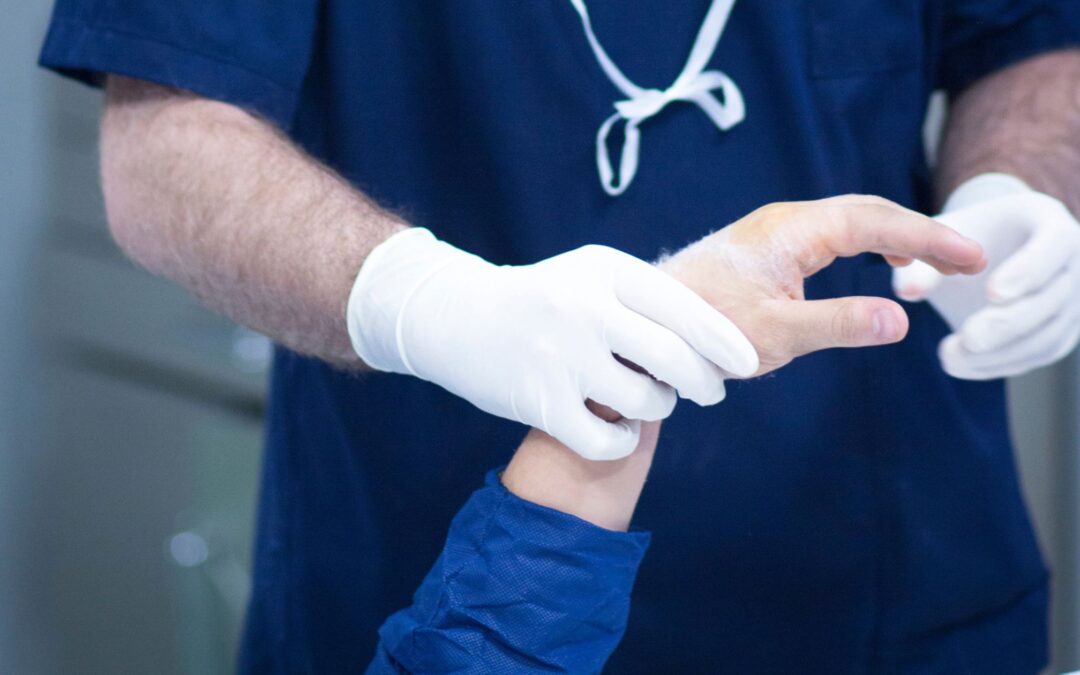When you have full use of your hands and wrists, it’s easy to forget just how often we use both throughout the day. From brushing your teeth to eating breakfast, typing on your computer, carrying your children, driving your car—the list is endless. But when an injury or condition impacts your ability to use your hands and wrists or causes pain, doing even simple, routine tasks can suddenly become a challenge.
When this occurs, the first thing you should do is visit a hand surgeon. The top hand surgeons in Utah treat a variety of injuries and conditions and can help you find a treatment option that works for you.
But what conditions does a hand surgeon treat? Let’s take a closer look.
What Conditions Does a Hand Surgeon Treat?
Put simply, hand and wrist surgeons treat any conditions or injuries that impact the hands and wrist. These conditions range from simple injuries like a sprain or strain to more serious conditions such as nerve damage.
Keep reading as we learn the answer to the question, “what conditions does a hand surgeon treat.”
Fractures
One of the most common types of hand and wrist injuries is fractures. A fracture can be caused by many different types of accidents. Falling and catching yourself on your hands and sports injuries are frequent causes of broken or fractured wrists.
Not all fractures require surgery. Instead, your wrist and hand doctor may treat your injury with splinting or a cast. Physical therapy may also be recommended to help you regain your strength and full range of motion. However, in some instances, surgery may be necessary to treat a severe fracture or one that isn’t healing properly.
Carpal Tunnel Syndrome
Another common condition that the best hand surgeon Utah has to offer treats is carpal tunnel syndrome. Carpal tunnel syndrome is a painful condition that occurs when a nerve in the wrist becomes pinched or experiences pressure. This pinching or compression can cause symptoms such as numbness, tingling, and pain in the hand and wrist.
Carpal tunnel syndrome is often associated with careers that require spending long hours typing at a computer. However, it can actually be caused by many different types of repetitive movements.
The top hand surgeons in Utah can diagnose carpal tunnel syndrome by performing a physical exam and conducting nerve conduction studies. Treatment options may include splinting, medication, or surgery.
Other Nerve Injuries
Our bodies contain hundreds of nerves. Your nerves carry electrical signals between your brain and the rest of your body. These signals are what allow us to feel sensations, as well as move our muscles.
When nerves become damaged, you can lose some of your sense of feeling. But you may also experience other symptoms. Numbness, tingling, and weakness in the area are all common side effects of nerve damage.
Common nerve injuries in the hand include cubital tunnel syndrome, radial tunnel syndrome, and ulnar nerve entrapment. A hand surgeon can diagnose nerve injuries by performing a physical exam and conducting nerve conduction studies. Treatment options may include splinting, medication, or surgery.
Arthritis
Arthritis is another common condition that causes inflammation of the joints. This condition mainly affects the joints in the hands, hips, knees, and spine. Developing arthritis in your hands can cause swelling, stiffness, and pain. As it progresses, arthritis can make it difficult to do everything from buttoning a shirt to holding a coffee mug.
There are many different types of arthritis. Some, like osteoarthritis, rheumatoid arthritis, and psoriatic arthritis, are more common than others. For instance, one lesser-known type of arthritis is called basal thumb arthritis, which specifically impacts the lowest joint on the thumb.
There is no cure for arthritis. However, various treatments, including surgery, medication, splinting, and injections can all be used to help lessen pain and improve mobility.
Tendon Injuries
Tendons are tough, fibrous tissues that connect muscles to bones. When tendons become damaged, it can cause pain, swelling, and a limited range of motion in the affected joint.
Common tendon injuries in the hand include trigger finger, de Quervain’s tenosynovitis, and tennis elbow. Some types of tendon injuries, like trigger finger, may be caused by repetitive motions. Others, like flexor tendon injuries, are usually caused by trauma, such as a car accident or a bad fall.
Most tendon injuries are treated with splinting or immobilization, though surgery may be necessary to repair the tendon and allow it to heal properly. After surgery, your wrist and hand doctor may suggest physical therapy to help you regain your full range of motion in the affected area.
Dupuytren’s Contracture
When you ask, “what conditions does a hand surgeon treat,” common answers will likely be conditions like arthritis, fractures, or carpal tunnel syndrome. However, the top hand surgeons in Utah also treat a variety of lesser-known conditions and injuries, such as Dupuytren’s contracture.
Dupuytren’s contracture is a condition that causes the fingers to bend inward towards the palm of the hand. It occurs when the tissue beneath the skin of the palm becomes thick and tight. Over time, this can cause the fingers to become permanently bent. This condition is more common in men and individuals over the age of 60.
There is no cure for this condition. However, an experienced hand surgeon may be able to help improve finger position and function through treatments like injection or surgical excision of the affected tissue.
Ganglion Cysts
Finding an unusual lump can be a scary experience. While ganglion cysts, which form on the joints or tendon sheaths of the hand or wrist, are non-cancerous, they can become large enough to restrict your movement and cause pain and stiffness.
Ganglion cysts are non-cancerous lumps that form on the joints or tendons of the hand and wrist. These cysts are made of fluid-filled sacs, and can often be diagnosed by a simple physical examination. Surgery can be used to remove the cysts, while removal of the fluid of the cyst can be done non-surgically in some cases.
Visiting a Hand Surgeon
Now that you know the answer to the question, “what conditions does a hand surgeon treat,” it’s time to schedule an appointment. Top hand surgeons in Utah can help you find the best course of treatment for your injury or condition to help you get back to living pain-free and doing what you love.
Schedule an appointment today to start your own journey to recovery.

